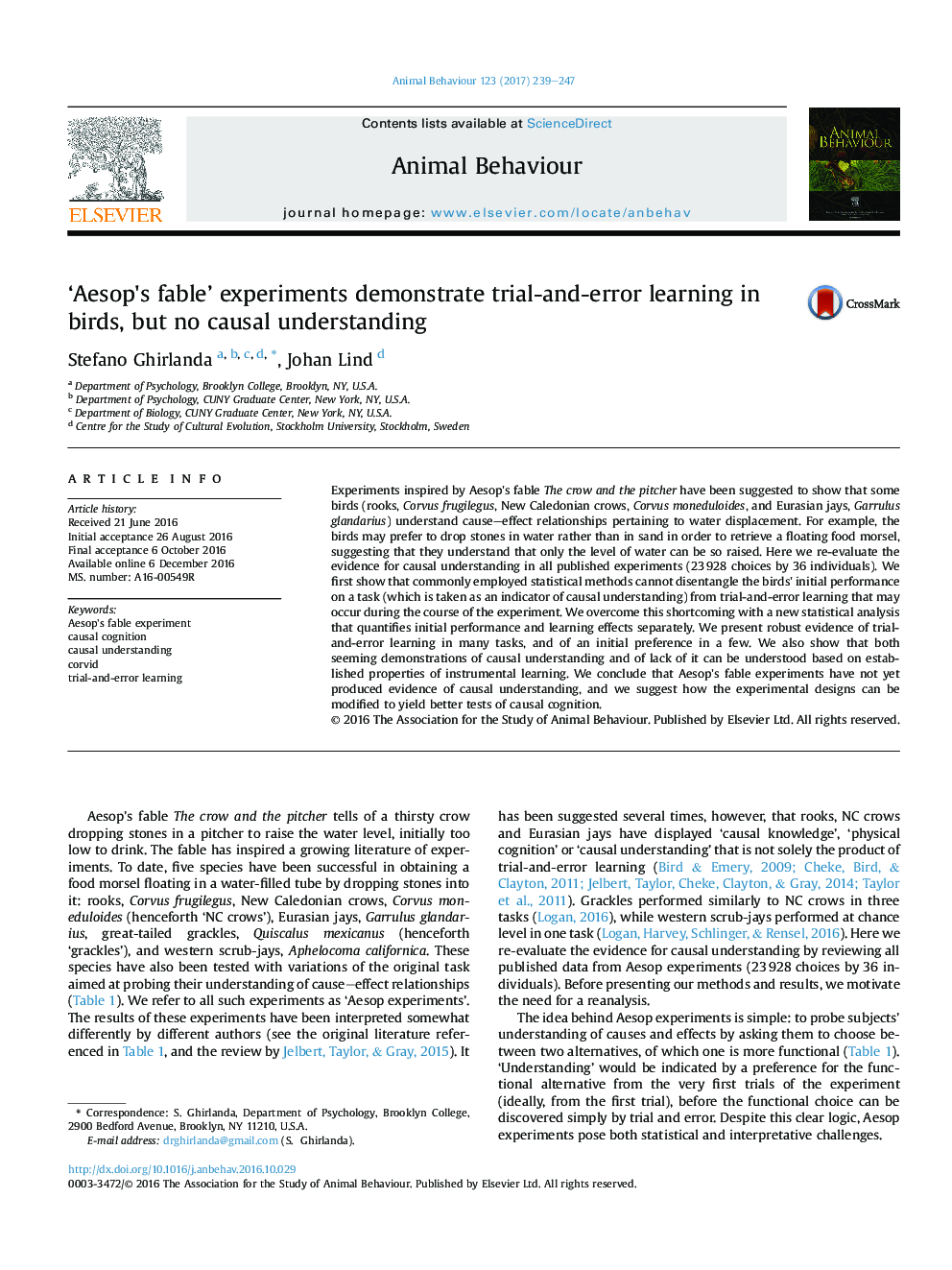| کد مقاله | کد نشریه | سال انتشار | مقاله انگلیسی | نسخه تمام متن |
|---|---|---|---|---|
| 5538588 | 1552205 | 2017 | 9 صفحه PDF | دانلود رایگان |

- Tests of 'Aesop's fable' present subjects with functional vs nonfunctional choices.
- Results may suggest that some corvids understand properties of water displacement.
- We found that trial-and-error learning often explains birds' performance.
- Stimulus generalization/genetic predisposition may also explain performance.
- We propose modifying existing experiments to better probe causal understanding.
Experiments inspired by Aesop's fable The crow and the pitcher have been suggested to show that some birds (rooks, Corvus frugilegus, New Caledonian crows, Corvus moneduloides, and Eurasian jays, Garrulus glandarius) understand cause-effect relationships pertaining to water displacement. For example, the birds may prefer to drop stones in water rather than in sand in order to retrieve a floating food morsel, suggesting that they understand that only the level of water can be so raised. Here we re-evaluate the evidence for causal understanding in all published experiments (23â928 choices by 36 individuals). We first show that commonly employed statistical methods cannot disentangle the birds' initial performance on a task (which is taken as an indicator of causal understanding) from trial-and-error learning that may occur during the course of the experiment. We overcome this shortcoming with a new statistical analysis that quantifies initial performance and learning effects separately. We present robust evidence of trial-and-error learning in many tasks, and of an initial preference in a few. We also show that both seeming demonstrations of causal understanding and of lack of it can be understood based on established properties of instrumental learning. We conclude that Aesop's fable experiments have not yet produced evidence of causal understanding, and we suggest how the experimental designs can be modified to yield better tests of causal cognition.
Journal: Animal Behaviour - Volume 123, January 2017, Pages 239-247